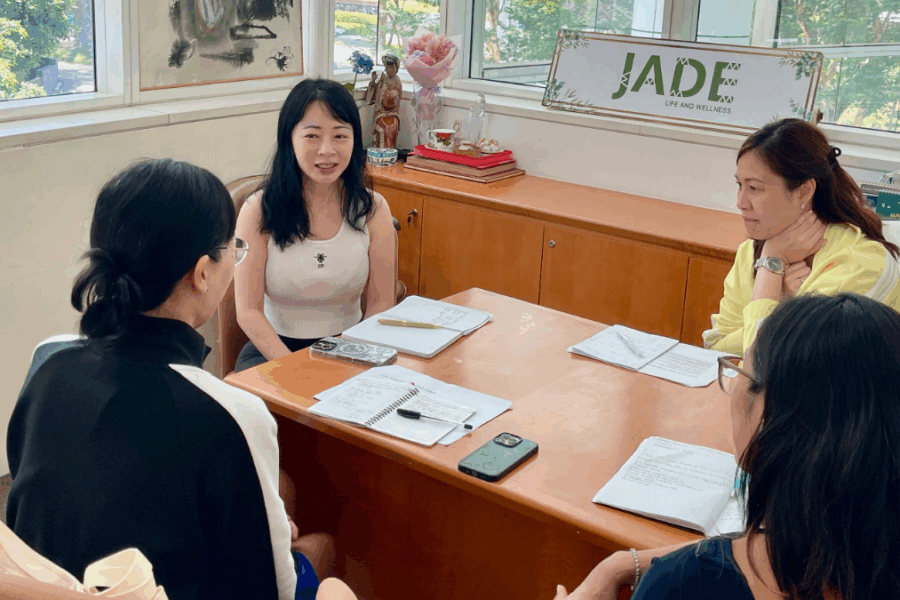When people hear the word “coaching,” they still often imagine high-powered executives in boardrooms or elite athletes at the height of their careers. Coaching has long carried the perception of being an exclusive service — aspirational but out of reach for the average person. Yet this picture is changing. Across Singapore and beyond, coaching clinics are emerging as open, inclusive spaces where personal growth is no longer a privilege, but a shared right.
At Jade Life & Wellness, we believe coaching belongs in the hands of everyone. Our open-door coaching clinic was born from a simple conviction: every person deserves the chance to be heard, guided, and supported.
Coaching as a Public Good
Traditionally, coaching was seen as a tool for leadership development programs or expensive one-on-one sessions. Valuable though these are, they left entire populations out: young people from disadvantaged backgrounds, caregivers stretched thin, workers in precarious jobs. These groups arguably need coaching the most — not to climb ladders of privilege, but to build resilience in the face of life’s challenges.
The coaching clinic model reframes growth. Like community healthcare centres, coaching clinics lower barriers to access. Fees are structured on sliding scales. Sessions are available in group or one-off formats. Coaches rotate on volunteer rosters to extend reach.
In other words: coaching moves from being a product for the few to a public good for the many.
Why Accessibility Matters
Accessibility is not charity. It is justice. A society where only the privileged can afford reflective growth is a society destined to fracture.
When coaching is accessible, ripple effects follow:
- Individuals gain clarity and coping strategies.
- Families benefit from calmer communication and healthier dynamics.
- Communities grow more resilient as members learn to manage stress and conflict.
Accessibility also normalises coaching. When people see coaching offered in community spaces, they no longer think of it as something exotic or remedial. Instead, it becomes a proactive investment in living well.
Coaching as Inclusion
Inclusion is not a slogan; it is a practice. Coaching clinics embody inclusion by removing the walls that keep reflection confined to the privileged. When growth enters neighbourhoods, schools, and workplaces, it affirms a radical truth: every life deserves clarity and support.
Designing a Coaching Clinic
From our experience, effective coaching clinics share common features:
- Accessible locations — libraries, community centres, schools.
- Sliding-scale fees — clients pay what they can, ensuring dignity without exclusion.
- Volunteer networks — experienced coaches give back; newer coaches gain practice.
- Group options — not every coaching conversation needs to be 1:1; group formats extend reach.
- Partnerships — clinics work best when tied into networks of social service organisations, schools, and employers.
Coaching the Coaches
Running clinics also requires preparing coaches. Accessibility is not only financial; it is cultural. Coaches must learn to navigate diverse contexts with humility, recognising that the coaching conversation may look different in a neighbourhood hall than in a corporate suite.
Through supervision and peer support, coaches can grow in sensitivity, ensuring they hold space without imposing assumptions.
A Call to Action
The rise of coaching clinics is not a passing trend. It is a sign of maturation — a profession evolving from exclusivity to inclusivity. As the industry develops, it faces a choice: remain elite, or become a public good that reflects its deepest values.
At Jade Life & Wellness, we choose the latter. To make personal growth accessible is to honour the purpose of coaching itself.
Reflection Questions:
- Where in your community could a coaching clinic make the most difference?
- How might your organisation partner to support accessibility?
- What would it mean for you, personally, to see coaching as a right rather than a privilege?
Get in touch with us
📩 Let’s connect if you are curious about what coaching can do for you.
If you are interested in learning coaching skills, get started with our SFC-eligible (SkillsFuture Credit) course here.









Leave a Reply
Your email is safe with us.